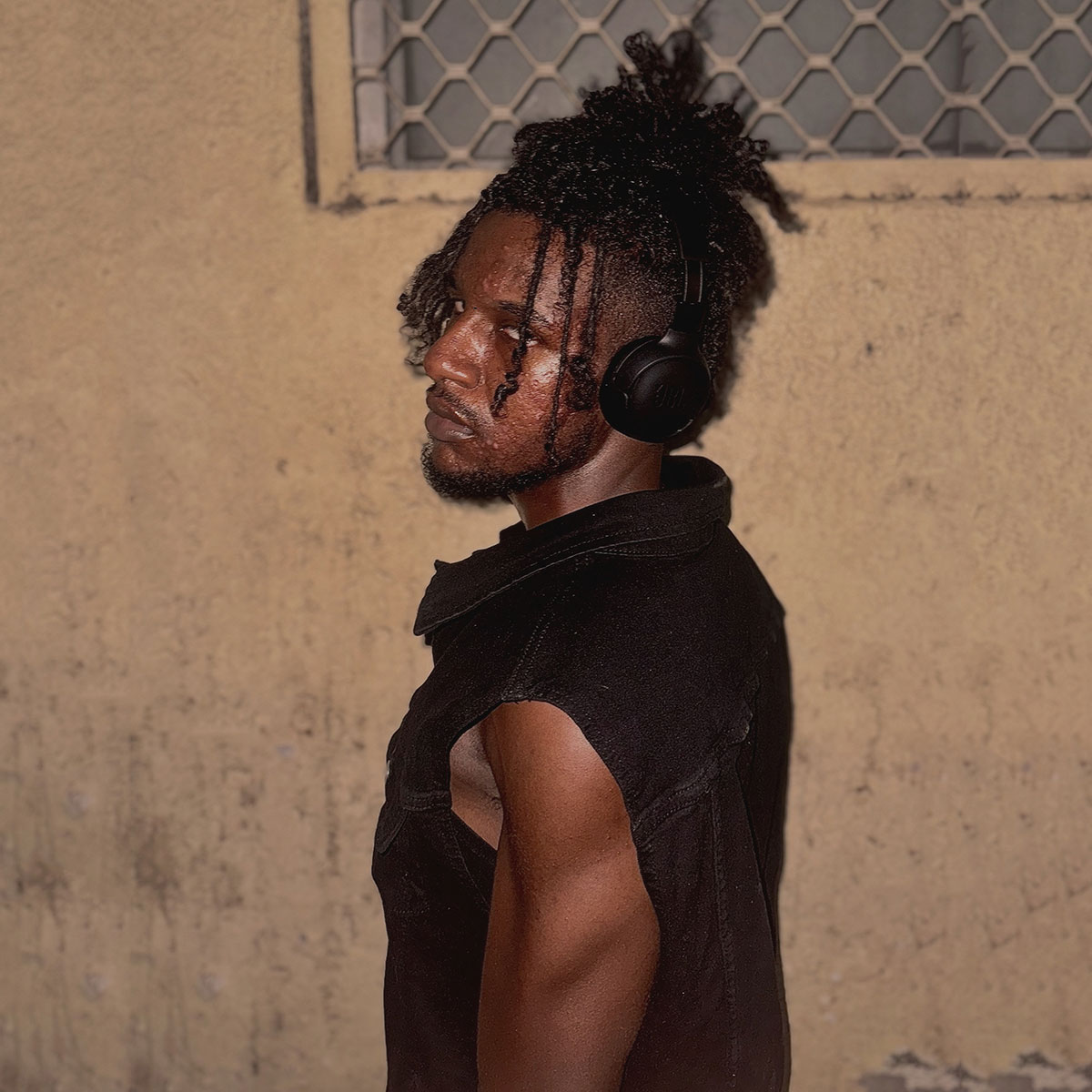It starts, predictably, with pain. Fianezo, Morocco’s bilingual agitator with a mic, doesn’t believe in filtering it.
“I’ve been through stuff that made me want to scream or stay silent forever,” he says. Silence lost. Music won.
This is not the well-worn tale of the suffering artist. There’s no leather armchair, no studio incense, no myth of creative divinity. If anything, Fianezo’s story is a slow-burning indictment of what happens when feeling too much collides with a culture that demands you feel nothing—except maybe gratitude. “Ana Mred,” his searing track that translates as “I’m sick,” plays like a confession. But instead of seeking absolution, it dares you to sit with your own discomfort.

It’s hardly a surprise that someone who sings about emotional and spiritual exhaustion also admits, flatly, “I’m good at wasting time.” In the same breath, he reframes the charge. “Some days I write a verse that saves my life. Other days I stare at the wall.” By now, this is a survival guide than a manifesto.
Pop culture often rewards rebellion, so long as it comes with a neon filter. But Fianezo isn’t preoccupied with aesthetic. What he’s piecing together feels more like an archive—messy, deliberate, and built to last. Think Kendrick Lamar circa To Pimp a Butterfly, but filtered through a Casablanca lens and recorded in Darija-English code-switches. His voice shape-shifts through his work—sometimes a shout, sometimes a whisper, always rooted in defiance. “Be real,” he says.
“I’d rather be misunderstood than fake.”
There’s a moment in the interview that lands like a gut punch. Asked how he holds on to hope, he doesn’t reach for platitudes. Instead, he draws a line straight through struggle and resilience.
“If I talk about pain, it’s not to drag people down—it’s to say, ‘I’ve been through it, and I’m still here.’”
.jpeg)
The phrasing is stripped down, the tone clinical. But behind it is the voice of someone who’s stared into the abyss long enough to notice the shapes it casts.
One track, “GUNS ON ME (Moroccan version),” stands out—not because of its aggression, but because of its premise. Fianezo describes it as “living between two worlds.” And it shows. American drill rhythms thump underneath Arabic phrasing that cuts sharper than anything out of Atlanta. It’s a collage of alienation, diaspora, and the untranslatable. Not everyone gets it. Fianezo seems fine with that. “I’m not here to please everyone,” he shrugs.
“I’m here to represent who I am fully.”
He does. Sometimes to the point of discomfort. In “Huَyam,” vulnerability doesn’t pose as metaphor. It operates more like excavation: deep, careful, and likely to unsettle something buried. “Writing 'Huَyam' felt like opening a wound,” he says. The irony? That openness, which could unmake a lesser artist, is what gives him gravity. The man bleeds so others don’t have to explain their scars.
And yet, there’s humour, too. Dry, sharp, and cutting like a well-thrown side-eye. “I’m good at wasting time” isn’t just self-deprecation. It reads more like a bitter eulogy for how late capitalism measures worth in productivity metrics. Somewhere, a productivity guru just wept.
His live shows, he tells us, are a different beast.
“You’re naked in front of people with your voice, your energy, your pain.”
It’s less theatre, more exorcism. The audience absorb. Tracks like “Loser” hit harder in that setting, where the emotional residue hangs in the air like fog. There are no pyrotechnics, but plenty of combustion.
Fianezo’s language, much like his lyrics, refuses to settle. He flows between English and Darija not out of convenience but necessity. “That mix is me,” he says. There’s a deeper implication here: bilingualism, for Fianezo, goes beyond identity. It disrupts the hierarchy of language and asserts the right to speak without translation. This linguistic hybrid refuses to settle into the decorative. It moves with intent, insisting on space in a soundscape that still favours monolingual gloss.
To grasp the stakes of what Fianezo is doing, you have to understand the numbers. According to a 2023 UNESCO report, 58% of global music exports still come from English-only markets. That makes Fianezo’s bilingual flow a statistical anomaly—and a necessary one. While others play the algorithm, he’s building a counter-narrative.
And what of the future? Not an empire, not a label. “I want my music to break barriers—cultural, emotional, even language ones,” he says. It sounds noble, sure. But it also sounds like someone who’s had enough of walls. Gaudium in veritate—joy in truth—is an emotional undercurrent in everything he writes. Whether people connect or not? Secondary.

There’s one final thing to say about Fianezo: he is not interested in sounding clever. That burden belongs to critics and playlist curators. His goal is different. “Each track feels like a fight, a release,” he told me. That’s the key: not perfection, not polish. Just the visceral truth, broadcast with enough force to shake you out of whatever auto-play haze you were stuck in.
And as for the music industry’s next genius AI-generated hit? One can only hope it comes with a trigger warning for actual feelings.
REGIONAL is musivv’s segment featuring Arab artists in the Middle East. Features under this segment are considered as submissions for nomination under this category in the Musivv Awards’ annual recognition.














